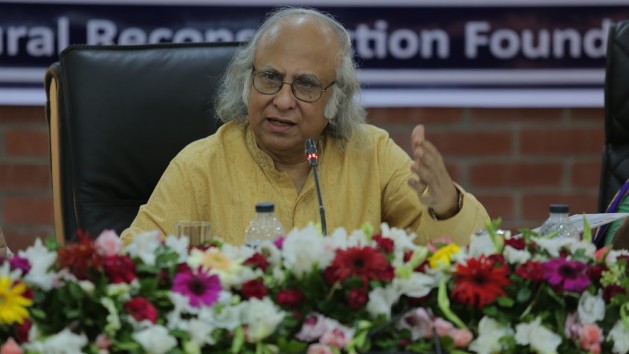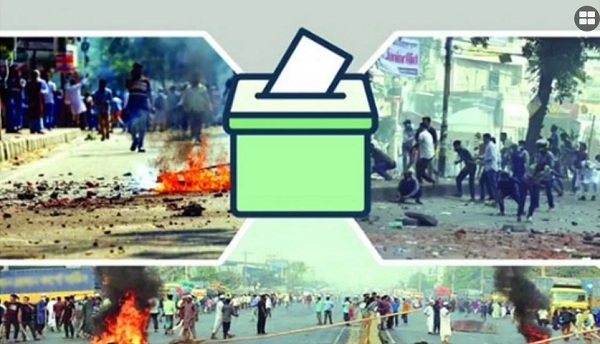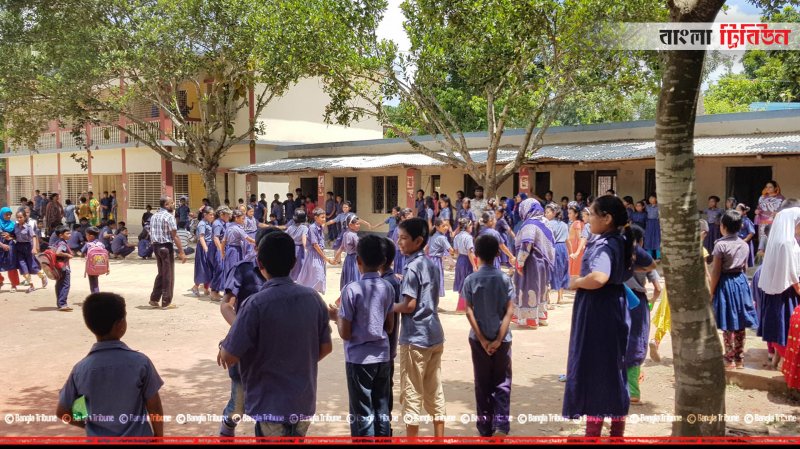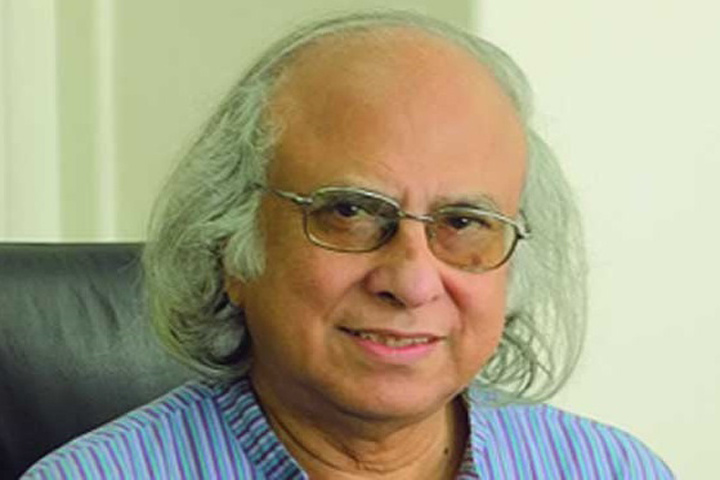An interview(Q&A) by Mahfuzur Rahman of IPS News
DHAKA, Oct 31 2016 (IPS) – Bangladesh, a country of 160 million people, has made significant progress in its efforts to accelerate economic growth, reduce poverty and promote social development, but it now faces certain challenges in consolidating these achievements and marching forward on the higher trajectory of development, says one of its leading economist.
The areas of challenge include inequality of various types (economic, social, rural-urban, gender), governance deficits, lack of effective focus on human dignity, rather sticky private investment, and ineffective coordination among agencies working on implementation of policies and plans.
“This is a life-cycle approach starting with conception of a child and finishing with old age and breathing of the last breath, intervening at all stages of life.”
In an interview with IPS, Dr Qazi Kholiquzzaman Ahmad, Chairman of the Palli Karma-Sahayak Foundation, a public-sector apex development body working with over 200 Partner Organisations (POs) across Bangladesh, implementing programmes with focus on human development of the downtrodden, said the country has been able to reduce poverty by almost 20 percentage points over the last 10 years or so.
But, the economist says, it will be harder for Bangladesh to address the remaining part of poverty, particularly hardcore poverty. Hence, more focused and coordinated efforts are needed to achieve the goal of eradicating extreme poverty within a reasonable time period.
He stressed the importance of pursuing an inclusive approach to promoting human development and human dignity instead of focusing too much on GDP. Dr Kholiquzzaman also says more committed actions are needed to check corruption and wastage to further accelerate development.
Pointing out that microcredit is an ‘ineffective formula’, he says the PKSF has shifted its focus from microcredit to the human being, providing both financial and non-financial services, including education and healthcare, training, managing climate change effects, social capital formation, skill development training, assistance in accessing appropriate technologies, market information, and assistance in marketing of products.
Q: These days, Bangladesh is acclaimed for its success on the socio-economic front. What role is PKSF playing in the country’s poverty alleviation process?
A. In recent years, Bangladesh has been making major strides in it socio-economic progress, which is recognised internationally. The PKSF makes its contribution to the process, given its mandate and abilities. The PKSF, established in 1990 by the government of Bangladesh as a not-for-profit organisation, works through Partner Organisations (POs) which are carefully selected non-governmental organisations (NGOs). It has now over 200 POs.
It has its presence in all the upazilas (sub-districts) of the country, with the number of families served being over 10 million (45-50 million people). The PKSF provides support not only in terms of credit, but also provides necessary non-financial services. In its Memorandum of Association, microcredit is not even mentioned. Education, health services, livelihood improvement, and employment generation are listed as the purposes of the PKSF.
Credit is mentioned, but that need not only be microcredit. Actually, we interpret it as being appropriate credit. The upper limit is now 12,800 dollars and the minimum is an amount for an ultra-poor family that it can purposefully use. Moreover, credit is now provided as part of a package that also includes skill training, access to technologies, and marketing assistance.
Q: Some 20-22 lakh (2 to 2.2 million) young people are now entering the country’s job market every year. What role the PKSF is playing in creating jobs?
A: Bangladesh has before it a huge demographic dividend to realise as a large part of its population is young. To realise these dividends means that the huge young population should be educated and trained and enabled to participate effectively in the socio-economic transformation processes. So, the PKSF focuses on skill training and employment generation for youths.
The PKSF implements programmes of total household development, which include education, health services, skill training, sports for children, youth development, and caring for old-age people. In fact, this is a life-cycle approach starting with conception of a child and finishing with old age and breathing of the last breath, intervening at all stages of life.
Q: What are the major challenges Bangladesh faces in eliminating poverty further? How can it move fast to close the urban-rural divide in development?
A: Bangladesh has reduced poverty very significantly, reducing it by about 20 percentage points over the last 10 years or so. It is now down to about 22 percent. Extreme poverty is now down to about 11.5 percent. In terms of numbers, still the poor account for over 36 million and extreme poor over 18 million. It may not be easy to eradicate the remaining part of extreme poverty as the circumstances of the people involved are highly constrained and different groups have different specific problems.
Among the extreme poor, there are certain groups which have been, by and large, bypassed by the significant socio-economic progress achieved: the dalit (so-called untouchables) and street cleaners, street children, female agricultural workers, hijras (transgender group), baggers, physically-challenged people, people living in haors and baors (wetlands), on riverbanks and in hills. These people have been left out; and it is not easy to address their problems as each group has different problems.
The government is evolving policies and programmes for these groups. The PKSF is also focusing on them, taking into account the needs of these various groups separately to address their specific problems.
Let me make a particular point here. Be it within the government or outside, there is a widespread concern about GDP growth in Bangladesh. In fact, this is very fashionable. International agencies such as the World Bank and ADB also join in. This conventional focus on GDP is not very useful from the point of view of inclusive development. Of course, growth of income is necessary. But, its distribution is crucial for inclusive and sustainable development. From this point of view, it is more useful to focus on the human being.
Q: Income inequality is now touted as a big challenge. How can Bangladesh address it?
A: The market economy has an inherent divisiveness as those who have money and access to technology and administration get more and more, depriving others of their legitimate shares, and accentuating disparity in the process. Disparity is measured in relation to income, consumption, and also wealth. In Bangladesh, income and consumption disparities are glaring; but these are not too bad here, considering that globally the richest one percent control half the world’s wealth and richest one percent of the population controls 40 percent of wealth in the USA.
We should focus, in particular, on people in rural Bangladesh. The rural economy is not only agricultural, but also non-agricultural sectors. And outside agriculture, there are lots of manufacturing and trading activities that are now emerging. If appropriate support is given to them, these will flourish.
Q: What needs to be done so women’s contributions are measured as economic activity and they feel that they are economic partners in the family and the community?
A: Women’s contributions to household economy and national economy come from their participation in formal and informal sectors, and performing household chores. Even those, who work outside home in formal or informal sectors, also take care of household chores. And women are also responsible for child rearing. The huge contribution made to the household economy in terms of not only housekeeping but also performing most of the post-harvest activities and often also agricultural field activities by women of farming families is not recognised as economic activity and, therefore, not valued in money terms.
This, I think, amounts to belittling women and their status. In fact, this is similar in the developing world in general. If women’s household level activities and their work in informal sectors are economically evaluated and added to national income, Bangladesh may already be a middle-income country.
Q: How do you look at discrimination against female workers in the RMG (readymade garment) sector?
A: As I said, they do double the work as they look after children, manage the kitchen, and perform other household chores and then work in offices, factories and other workplaces. Those women who work in RMG factories face many difficulties like unpleasant office and factory environments as, in many cases, there is no separate toilet and no separate common room for them.
When it comes to wages, there is discrimination as well. Even when they do the same work as their male counterparts, they are paid less. And at the decision-making level across the sectors, the number of women is still very small. Sexual harassment is another difficulty they face at workplaces. Media can play an important role in helping resolve the issues by highlighting them again and again.
Q: Has there been any international replication of the PKSF model?
A: Our current model is not properly replicated yet by any country. Earlier, the concept of an apex body for microfinance was replicated in Sri Lanka, Nepal, and some other countries to channel funds for microfinance. Now, some countries and organisations are showing interest in the new PKSF approach.
The OIC Secretary General, in one of his visits to Bangladesh, was briefed about the PKSF and its people-focused, multidimensional integrated approach to poverty eradication and sustainable development. He showed interest in our approach. Some African countries also want to replicate it. The PKSF also has collaborative activities with Vietnam and China.
Q: How do you asses IFAD’s poverty alleviation strategy in Bangladesh and PKSF’s partnership with it?
A: The PKSF is working with IFAD for enterprise development through value and supply chain interventions. The main focus of a project with IFAD that the PKSF is implementing is on agricultural commercialization. The outcomes are income generating and poverty alleviating ones. These interventions are boosting productivity and production as well as employment in such activities as milch cow fattening, quality shoe production in rural setting, improved method of prawn production, dragon fruit production, and crab hatchery.
It may be pointed out that the PKSF, being a government-established Foundation, cannot receive money directly from any source, including UN agencies such as IFAD. Projects like this one with IFAD comes to PKSF via the government of Bangladesh. Of course, the PKSF participates in the negotiations.



